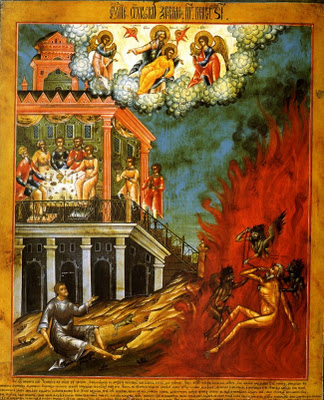


 While I was going to college I had a great part time job: a dealer’s paper route for the Los Angeles Times. Seven days a week I drove 75 miles from San Diego south across the border and out to the Tijuana Race Track. Sunday mornings the papers were super heavy and many stores on my route ordered extra copies. I put lots of miles on my grandfather’s 1934 Ford V8. The best part was listening to four hours of classic music from KFAC Los Angeles. I was up at 2:00 AM but back home by 6:30 so I could drive fellow students from Chula Vista across to hills to San Diego State College.
While I was going to college I had a great part time job: a dealer’s paper route for the Los Angeles Times. Seven days a week I drove 75 miles from San Diego south across the border and out to the Tijuana Race Track. Sunday mornings the papers were super heavy and many stores on my route ordered extra copies. I put lots of miles on my grandfather’s 1934 Ford V8. The best part was listening to four hours of classic music from KFAC Los Angeles. I was up at 2:00 AM but back home by 6:30 so I could drive fellow students from Chula Vista across to hills to San Diego State College.
Saturdays were study days --while listening to Milton Cross narrate the live broadcasts from the Metropolitan Opera in New York. Classical music, pipe organ and opera were not my only musical tastes. I disliked jazz, country music and the popular music of that era. But I loved folk music and Blue Grass. I remember my first exposure to the Carter Family was on AM Border Radio.
Sundays I tuned in to the live broadcast of the Old Fashioned Revival Hour led by Charles E. Fuller (think Fuller Seminary). Mrs. Fuller read the letters from prison. The choir sang “Heavenly Sunshine” and “Jesus Saves.” I had no clue what being S-A-V-E-D meant but the enthusiasm in the auditorium was roof-raising. Ten years would elapse before I was spiritually reborn and understood John 3:16 was about real life.
Friend of mine, seated by the radio listening to this broadcast, outside of Christ – God is not willing that you should perish, but that you should come to repentance. And if you will come through Christ, accepting Christ as your personal Savior, for He is the way, the truth and the life, and no man cometh unto the Father expect by and through Him.  How Saved are You? Send the Light Heavenly Sunshine How Jesus Saves |







The examples shown about hint at the greater salvation Jesus offers us all. The trouble is, we don't realize how desperately lost we all are until we begin to seriously consider God's revelation of realty to us given in the Bible.
What then? Are we any better off? No, not at all; for we have already charged that all, both Jews and Greeks, are under the power of sin, as it is written:
‘There is no one who is righteous, not even one;
there is no one who has understanding,
there is no one who seeks God.
All have turned aside, together they have become worthless;
there is no one who shows kindness,
there is not even one.’
‘Their throats are opened graves;
they use their tongues to deceive.’
‘The venom of vipers is under their lips.’
‘Their mouths are full of cursing and bitterness.’
‘Their feet are swift to shed blood;
ruin and misery are in their paths,
and the way of peace they have not known.’
‘There is no fear of God before their eyes.’Now we know that whatever the law says, it speaks to those who are under the law, so that every mouth may be silenced, and the whole world may be held accountable to God. For ‘no human being will be justified in his sight’ by deeds prescribed by the law, for through the law comes the knowledge of sin.
But now, irrespective of law, the righteousness of God has been disclosed, and is attested by the law and the prophets, the righteousness of God through faith in Jesus Christ for all who believe. For there is no distinction, since all have sinned and fall short of the glory of God; they are now justified by his grace as a gift, through the redemption that is in Christ Jesus, whom God put forward as a sacrifice of atonement by his blood, effective through faith. He did this to show his righteousness, because in his divine forbearance he had passed over the sins previously committed; it was to prove at the present time that he himself is righteous and that he justifies the one who has faith in Jesus.
We know that our old self was crucified with him so that the body of sin might be destroyed, and we might no longer be enslaved to sin. For whoever has died is freed from sin. But if we have died with Christ, we believe that we will also live with him. We know that Christ, being raised from the dead, will never die again; death no longer has dominion over him. The death he died, he died to sin, once for all; but the life he lives, he lives to God. So you also must consider yourselves dead to sin and alive to God in Christ Jesus.
Therefore, do not let sin exercise dominion in your mortal bodies, to make you obey their passions. No longer present your members to sin as instruments of wickedness, but present yourselves to God as those who have been brought from death to life, and present your members to God as instruments of righteousness. For sin will have no dominion over you, since you are not under law but under grace.
What then? Should we sin because we are not under law but under grace? By no means! Do you not know that if you present yourselves to anyone as obedient slaves, you are slaves of the one whom you obey, either of sin, which leads to death, or of obedience, which leads to righteousness?But thanks be to God that you, having once been slaves of sin, have become obedient from the heart to the form of teaching to which you were entrusted, and that you, having been set free from sin, have become slaves of righteousness. I am speaking in human terms because of your natural limitations. For just as you once presented your members as slaves to impurity and to greater and greater iniquity, so now present your members as slaves to righteousness for sanctification.
When you were slaves of sin, you were free in regard to righteousness. So what advantage did you then get from the things of which you now are ashamed? The end of those things is death. But now that you have been freed from sin and enslaved to God, the advantage you get is sanctification. The end is eternal life. For the wages of sin is death, but the free gift of God is eternal life in Christ Jesus our Lord. (Romans 6:6-23)
‘The Lord has sworn
and will not change his mind,
“You are a priest for ever” ’— accordingly Jesus has also become the guarantee of a better covenant.Furthermore, the former priests were many in number, because they were prevented by death from continuing in office; but he holds his priesthood permanently, because he continues for ever. Consequently he is able for all time to save those who approach God through him, since he always lives to make intercession for them.
For it was fitting that we should have such a high priest, holy, blameless, undefiled, separated from sinners, and exalted above the heavens. Unlike the other high priests, he has no need to offer sacrifices day after day, first for his own sins, and then for those of the people; this he did once for all when he offered himself. For the law appoints as high priests those who are subject to weakness, but the word of the oath, which came later than the law, appoints a Son who has been made perfect for ever. (Hebrews 7:20-28)
The human race is fallen, self-centered, corrupted and mortally damaged by the sin of Adam. All aspects of our humanity have been affected. For the sake of discussion one can make a table of what might be considered archetypal aspects of our fallen sexuality. The table below is suggested as a model for discussion purposes and is not a description of specific men or women, obviously!
| OUR FALLEN MASCULINITY | OUR NEGATIVE FEMININITY |
Beast-like Authoritarian, domineering, ruthless, despotic Lords it over others Devalues importance of emotions Overly logical, methodical, rigid Cold, indifferent, impersonal, unapproachable Demands respect of subordinates Intimidates others or rules them by fear Unforgiving, and unwilling to be a team-member Boring, unimaginative, overly self-controlled Overly logical, unable to be spontaneous Willing to compromise to gain position or power A beast, tyrant or a despot |
Harlot-like Possessive, controlling, Manipulative, contriving Irrational in rejecting logic, emotionally controlled Gives love or affection but extracts a price Selfishly concerned with appearances and prestige Entraps others for her own purposes Demands attention and recognition A witch, sorceress or seductress |

The original creation is damaged goods. Yes, man was made in the Image of God, but now... Once we make allowances for a fallen world and inherent self-centeredness in both sexes it begins to be clear that the relationship between the sexes ought to be impossible and totally without hope. Probably this would be so, were it not for the grace of God and the redemption God has made available to mankind---beginning with his restoration and re-creation of Adam and Eve after their fall. Much more about all this is included in the references below. For now think, "Totally Depraved" and you'll be off to a good start. The important think is that Jesus saves by appealing to our logic firs and our emotions second. Both matter because wholeness in what's God is seeking in us.

 A genome is an organism's complete set of genetic information. A genome includes all of the hereditary instructions for creating and maintaining life, as well as instructions for reproduction. The human genome, like all other cellular life forms, consists of DNA and includes both the nuclear and mitochondrial DNA.
All of the cells within a complex multicellular organism such as a human being contain the same DNA; however, the body of such an organism is clearly composed of many different types of cells... The answer lies in the way each cell deploys its genome.
For those who are new to the debate: a “mitochondrial Eve” refers to mitochondrial DNA, the unique genetic code that is passed down from female to female. ...In nearly all multicellular organisms, mitochondrial DNA is passed down the matrilineal line from generation to generation.
A genome is an organism's complete set of genetic information. A genome includes all of the hereditary instructions for creating and maintaining life, as well as instructions for reproduction. The human genome, like all other cellular life forms, consists of DNA and includes both the nuclear and mitochondrial DNA.
All of the cells within a complex multicellular organism such as a human being contain the same DNA; however, the body of such an organism is clearly composed of many different types of cells... The answer lies in the way each cell deploys its genome.
For those who are new to the debate: a “mitochondrial Eve” refers to mitochondrial DNA, the unique genetic code that is passed down from female to female. ...In nearly all multicellular organisms, mitochondrial DNA is passed down the matrilineal line from generation to generation.
The First People to Disobey God
Adam and Eve were the first people to do something wrong. As it is told in Genesis 2:16-17 , God told Adam that he was free to eat from every tree in the garden, except the tree of knowledge of good and evil. God said that he would die if he ate the fruit. We don't know what kind of fruit this tree had. Milton introduced the idea that it was an apple. Later, Eve was deceived by Satan speaking through a serpent and ate the fruit. She then took the fruit to Adam and he ate it knowing he was doing the wrong thing. Because they disobeyed what God had explicitly told them and chose to believe Satan, they began to experience spiritual death, and soon physical death. God expelled them from the garden. Adam and Eve sinned by placing their desires above what God had told them and through this act sin entered the world. No longer would it be easy to harvest fruit. Thorns and weeds would make planting and harvesting hard labor. Men would have to work to eat. Women would give birth in pain. Animals became dangerous and carnivorous.
The End of the Story?
Is this the end of the story about Adam and Eve? Did God expel Adam and Eve from the garden without providing a way for them to repair their relationship with Him? Or did God make a way for people's sin to be taken care of? How can what you believe about Adam and Eve affect your life today? If you believe that Adam and Eve were created by God and disobeyed Him, bringing sin into this world, does that make you a sinner? If so, how does that change your view of yourself? Of God? Of your relationship with God? These are vital questions to explore as they lead to the ultimate questions of life. Source: AboutGod.com


by Ethan Renoe
Last week I met a girl in a coffee shop.
It’s not that uncommon for me to start conversations with complete strangers, male or female; sometimes we hit it off and become friends, other times it’s just a one-time chat. The interesting thing about this particular conversation is that, not only did we hit it off, but we kept talking for the whole week. Again, that’s not super unusual, but the interesting thing about her is, she’s not a Christian.
When the subject of religion came up, she politely clarified she grew up Christian, but she is NOT one now.
The more we talked, however, I began to see just why she left Christianity. The church where she grew up was quick to dismiss people for a plethora of sins. When she got her first tattoo, there was a massive freak-out that ran through her family and their church friends. She even said her brother had a best friend, but that friend came out as homosexual. The brother responded by never talking to that friend again.
At one point, my new friend summed it up concisely: “I associate Christianity with judgment.”
After hearing her story, I told her that if I grew up with her experience of Christians, I wouldn’t want anything to do with that religion either! I mean, who would?
There are always perks of being in an exclusive club, which is how many of today’s churches exist. You enter into a tribal “us versus them” mentality and get to be on the inside. You get to be the one determining who is in and who is out. For many people, this is attractive, as long as you’re the one on the inside. Many Christians defend these actions by claiming to be in pursuit of holiness. They seek a sort of purity for their lives, but do it at the expense of cutting out everyone who doesn’t align with their particular vision of holiness.
The problem is, that is so ridiculously far from the Christianity Jesus demonstrated that it’s laughable. Where in the Bible are we called to live in an exclusive club which casts people out for breaking the rules? Is that really how we are to live?
My new friend repeatedly told me throughout the week that she had never met a Christian like me, who was ‘cool’ and non-judgmental and had tattoos. I told her there’s nothing special about me, she has just been hanging out with the wrong Christians her whole life! I imagine that compared to them, most Christians would seem pretty good.
The problem is, her experiences in church had formed such a terrible picture of what Christianity is that she wanted nothing to do with it. And I can’t blame her; I wouldn’t either. What’s worse is, her experience is far from isolated. I can’t help but wonder how many people my age would still be in church today if they hadn’t been driven out by judgmental, angry and exclusive Christians.
So what’s the alternative?
Attractive Christians.
Since hanging out with my new friend and introducing her to some of my community, I think we have slowly began to change her opinion of Christians. I’m not saying that my friends and I are exemplary Christians, or that we are better than everyone else and everyone should be like us. We have plenty of issues and weaknesses.
What I am saying is that my roommates and I make an effort to be welcoming—we try to go out of our way to welcome everyone, before we even discover if they’re a Christian or not. Because that has no impact on how we will treat them. We want them to be attracted to us in the hopes that we will in turn attract them to Christ. Far too many Christians are just blatantly unattractive that they drive people not only away from themselves, but also away from church and Christ Himself.
(You hopefully know by now I’m not talking about looking attractive, but one’s ability to attract people to themselves with love, acceptance, etc. Just like Jesus did, even if He wasn’t necessarily good-looking. The irony is how many pastors think it’s best to attract people by looking good or wearing expensive designer rags.)
So what does this look like? Here are a few do’s and don’t’s, though it’s far from a comprehensive list.
Do: Welcome everyone with a smile, regardless of race, religion, or sexual beliefs.
Don’t: Discard people like they’re rotten pieces of fruit. You don’t get “heaven points” for pointing fingers at others.
Do: Be open to all sorts of interests, from film to music to popular trends or celebrities. This doesn’t mean you need to like them in your private time, but nothing makes people want to walk away from you like saying, “Oh, you like the Kardashians? I HATE them!”
Don’t: Yuck other people’s yums. Just because you don’t care for something doesn’t mean everyone needs to know. Loudly disliking someone’s favorite (dirty) song doesn’t make you a better Christian, it just makes you unattractive.
Do: Listen to other people’s opinions and beliefs, even (gasp) people across the political aisle. They have their own personal reasons for thinking the way they do, but this doesn’t mean you need to be enemies.
Don’t: Get into comment wars. Ever. Or conversational wars, etc. Learn how to disagree with someone and love them at the same time. If you can learn that last one, you’ll go far in life.
Do: Be generous. Be kind. Be a good listener.
Do: Be stoked about Jesus. Nothing makes people curious about a subject like seeing others who are passionate about it. My new friend even told me she wants to check out my church because of how I “light up when talking about God.” Again, nothing super special about me, I’m just excited to connect people to Him!
I know this is all pretty generalized, and you would think it would be more widely practiced because of how obvious it is.
We will never win the world to Christ if all of our first impressions are just repulsive. Paul wrote often about not judging those outside the church (1 Corinthians 5:12), and Jesus told us that it is by our love the world will know we are Christians (John 13:34).
There is no excuse for being an unattractive Christian. Those people don’t just drive others away from themselves, but away from Jesus Himself. Let’s all work on drawing others to ourselves so we can point them to the source of love, joy, and life. Ethan Renoe.

|
|
‘There was a rich man who was dressed in purple and fine linen and who feasted sumptuously every day. And at his gate lay a poor man named Lazarus, covered with sores, who longed to satisfy his hunger with what fell from the rich man’s table; even the dogs would come and lick his sores. |
In the parable we have chosen today we have the only occasion when our Lord drew aside the veil between this world and the next and allowed us to see what is beyond, and to see the intimate relationship between the here and the hereafter. This is a very important matter. You have heard of the epitaph that was written on one tombstone:
Remember, Friend, as you pass by,
As you are now, so once was I.
As I am now, soon you shall be
Prepare for Death, and follow me.
Some wag had added the words:
To follow you, I'm not content
Until I know which way you went!
All will agree that that is the supreme thing!
This parable of our Lord, found in Luke 16, grows out of the reaction of the Pharisees to his story of the dishonest steward. The point of that was that our Lord emphasized and underscored the link between money and spirituality. He indicated that man must love God and use money, instead of using God and loving money, as these Pharisees were doing, and as many still do today. Because of this teaching they ridiculed him, as we read in Verse 14:
The Pharisees, who were lovers of money, heard all this, and they scoffed at him. (Luke 16:14 RSV)
They openly mocked him. To answer that scoffing, our Lord tells the story of the rich man and Lazarus. He sets the scene in the opening verses.
"There was a rich man, who was clothed in purple and fine linen and who feasted sumptuously every day. And at his gate lay a poor man named Lazarus, full of sores, who desired to be fed with what fell from the rich man's table; moreover the dogs came and licked his sores." (Luke 16:19-21 RSV)
Obviously our Lord intends to draw a deliberate and vivid contrast between the rich man and the poor man. You may have heard this rich man referred to by the name of Dives, but dives is simply the Latin word for "rich." When this parable was translated from Greek into Latin, this is the word that was used, and consequently this rich man has been called Dives ever since. But our Lord does not name him and it is significant that he does not. All the distinctives about this man are external. All we are told about him is the way he dressed and the way he ate. He was dressed in purple and fine linen, which was the ultimate of extravagance in clothing in those days, and he also set a very fine gourmet table, not once a week but every day.
Thus the only thing Jesus has to say about this rich man is that he was characterized by the externals of life. There are many people like that. Their whole concern is: "What shall I eat, and where shall I sleep, and wherewithal shall I be clothed?" -- so it was with this rich man. He lived a hollow life concerned only with the love of display and the desire for self-indulgence.
In direct contrast to this, the Lord portrays Lazarus. He is the only character in any of the parables who is given a name. The name is significant; it means, "God is my helper." Surely this is deliberately intended by our Lord to suggest that Lazarus was a godly man. Even though poor and a beggar, God was his helper.
Some have thought that, because he is named, this is not really a parable. But all other indications are that this is a parable, although it may well be that he knew someone like this. At any rate, he gives us this name, Lazarus, to indicate the poor man's piety. Though he was a godly man, he nevertheless lay at the gate of this rich man, sick and hungry, his body covered with loathsome, running sores, waiting for any scrap of food to come from the rich man's feast.
In those days they did not use knives or forks or napkins; they would eat with their hands, wiping them on crusts of bread which were thrown out afterward. This was what the poor man, Lazarus, was waiting for -- crusts of bread that had been thrown out after the feast. The only help that our Lord indicates came to this man was from the dogs who would lick his sores. That was the only comfort he had in the midst of his unhappy life. He was ignored totally by the rich man who drove daily out the gate but who never saw him lying there.
In Act 2, our Lord changes the scene completely
The poor man died and was carried by the angels to Abraham's bosom. The rich man also died and was buried; and in Hades, being in torment, he lifted up his eyes, and saw Abraham far off and Lazarus in his bosom. And he called out, "Father Abraham, have mercy upon me, and send Lazarus to dip the end of his finger in water and cool my tongue; for I am in anguish in this flame." But Abraham said, "Son, remember that you in your lifetime received your good things, and Lazarus in like manner evil things; but now he is comforted here, and you are in anguish. And besides all this, between us and you a great chasm has been fixed, in order that those who would pass from here to you may not be able, and none may cross from here to us."
There are two frequent reactions to this story of the rich man and Lazarus. The first one is that it rather pleases the old Adam in us to see this bloated rich man get his comeuppance in the next life. We feel it is rather fitting that he is in torment while his magnificent funeral is going on on earth. This is what our Lord suggests by stating that the rich man was buried. He doubtless had a magnificent funeral, but there is nothing said of the burial of the poor man. His body was probably thrown out on the city dump, outside the city walls, as the bodies of beggars customarily were. But in the next life Lazarus is comforted and finds relief, while the rich man is in pain and anguish.
Often people react to this by feeling, "That's the way it should be." Many feel that this is what heaven and hell are for, to compensate for what happens in this present life, to square accounts for what we have to go through down here. But if that is the way we feel about it, then, of course, we are quite wrong. If that were true, then the Communists are right when they say that religion is the opiate of the people. It is merely designed to keep the poor happy until they get to the next life, and to look for recompense only in the life to come. This is what Communism teaches: The whole purpose of religion is to keep the poor from rebelling against their lot. But we must understand that the rich man was not in hell because he was rich any more than that Lazarus was in heaven because he was poor. Heaven and hell are not a compensation for what you go through here. The principle that determines who goes where is quite different, as we shall see as the story unfolds.
The second reaction to this story is to recoil from this picture of the afterlife especially from the thought of hell, with its flames and its torments. Many are offended by this story and feel that it belongs to a category of Christian literature which has been appended to the record, that it could not really be what Jesus would teach.
Once again that view is wrong. There is absolutely no question but that these words came from the lips of the Lord Jesus himself. And, in thinking about a story like this, we have to face two things very clearly. The first is our Lord's use of metaphors, of figurative language of symbols. There are symbols in this story. "Abraham's bosom" is one. Obviously we cannot take that literally. The righteous dead do not go and rest upon Abraham's bosom: There simply is not room for them all there. But the phrase indicates that where Abraham, the father of the faithful, is, there these righteous dead are also. We are "sons of Abraham" in that respect and therefore go where Abraham is.
Let us not get hung up on the geography of the hereafter in thinking about this. Some try to locate hell in the molten core of the earth; others try to locate it on some distant planet. But the point of this story is not location at all. We are over literalizing these figures when we attempt that kind of thing. Hell is not a question of location but of another dimension entirely. If we think in terms of dimension rather than location we shall be much more in line with what the Scriptures are getting at.
Take these other figures, the flames, the water, the tongue, the great chasm, etc. They, too, are metaphors, and we must not literalize them any more than we do the other metaphors of Scripture. When Jesus says, "I am the door," you do not start looking for the doorknob, or think of him in terms of a wooden door. That is a figure, and we view it as such. When he says to his disciples, "You are the salt of the earth," they do not go around licking each other but understand that he means this as a metaphor.
When Paul speaks of believers as being "sealed by the Holy Spirit" (Ephesians 1:13, 4:30), he does not mean that God comes along with a branding iron when the Holy Spirit comes in and puts a seal upon us; rather, this is a figure of speech. We use terms like this in our everyday conversation. Some of you may go through a difficult experience, and you say. "Oh, I'm all shook up!" What do you mean? ... that somebody has taken hold of you and shaken you so that your intestines come unraveled? No, you mean that you are upset; the figure is not to be taken literally. So we must understand that our Lord, in a picture like this, does use figures.
But the second thing we must face is that these symbols mean something. They are not mere empty expressions, mere words used only for effect, but they convey a deeper reality. The flames, though they do not mean literal flames, do refer to something that is like literal flames, perhaps a consuming, burning experience -- probably that of memory or of desire unfulfilled. We all know that in our inner life we can have a sense of being burned, consumed by some burning passion within. The only thing we can compare it to is being burned with physical flames, but, though it is not the same thing, it is often more real. Thus the torment here is not physical torment but mental, spiritual -- perhaps that of loneliness (what a torment that can be!), or of despair. These are certainly qualities that are associated with the concept of hell.
Many people say they are going to go to hell because their friends are all there. They will never see one if they do. Hell is a lonely place a place of utter aloneness. There is no one in view here but the rich man. He sees no one but himself.
The water, of course, is a symbol of relief. His desiring to have Lazarus touch the tip of his tongue with a finger dipped in water is a symbol of some kind of relief for which he hopes. The chasm indicates the impossibility of change. It is not a literal chasm or a great gulf fixed. We make a mistake in trying to visualize hell as a place where all the lost are in flames below, while above, in heaven, are the redeemed and there is a great gulf between them. The chasm simply indicates the impossibility of a change in either condition. No one can pass from the one to the other. That is all that is meant by the chasm.
If we recoil from this, then let us remember that we do not recoil any more than God does. This is not what God wills for human beings. This is what the prophets refer to as "the strange act of God," (Isaiah 28:21). It is necessary because of human choice, but it is unwanted by God and veiled in mystery. The final scene of this story records the further conversation of Abraham and this former rich man.
"And he said, 'Then I beg you father to send him to my father's house for I have five brothers so that he may warn them lest they also come into this place of torment.' But Abraham said 'They have Moses and the prophets; let them hear them.' And he said 'No father Abraham; but if some one goes to them from the dead they will repent.' He said to him, 'If they do not hear Moses and the prophets neither will they be convinced if some one should rise from the dead.'" (Luke 16:27-31 RSV)
Here in hell, for the first time, this rich man feels something akin to love: concern for his brothers. Yet it only adds to his torment for he can do nothing about it. Some of you have seen the musical Carousel. Its theme is that a father returns from heaven to warn his daughter who has grown to teenage since he was killed. But this can never be. Much as we would like to have it happen, the dead do not come back to warn us.
In reading Dr. Helmut Thielicke's commentary on this parable, I was struck by one sentence. He says "The torment of the dead is that they cannot warn the living, just as it is the torment of the mature that the erring young will not listen to them." If you have felt that torment then you know something of what the torment of the dead is -- a desire to warn but an inability to do so.
There are many who in reading this story feel this is quite unfair. Why should God not grant this man his request to warn his brothers: If God really does not want men to go to hell, then why does he not allow the utmost of warning in order that any might be kept from hell? But if that is the way we feel then we have missed the point of Abraham's words. This rich man is not denied his request because God is unwilling to give as much opportunity as possible; he is denied it because it is useless, because it will not work. As Abraham points out, if they do not hear Moses and the prophets neither will they be convinced if some one should rise from the dead.
How accurately this parable portrays our human desire for the spectacular, the dramatic, the shocking to occur! We have all felt this way at times. We ask, "Why is it so hard to believe? Why doesn't God do more? Why doesn't he open the heavens and speak to us? Why doesn't he perform miracles again, as in the days of our Lord, or send an angel to speak to us?" Many feel that if they could only see a miracle, or be spoken to by an angel, then they would believe. But we need to ask ourselves: How many who saw the miracles in our Lord's day still believed in him at the end of his life? How many stayed with him who believed because of the miracles?
We know there were very few. Only a handful of people stood around the cross. And what did men do when, shortly after this, another man named Lazarus was actually raised from the dead? What did men do? Did they believe? According to the record, they simply took counsel together to put him to death again! Even when Jesus himself returned from the dead (and that story has been flung around the world since) men do not believe.
No, Abraham is right. The most convincing proof is "Moses and the prophets," the Word of God, especially that Word made flesh, come to dwell among us. The rich man was in hell because he refused to heed Moses and the prophets, not because he was rich. His activities as a rich man grew out of his refusal to hear Moses and the prophets. His self-centered, self-indulgent life is a reflection of that refusal, but he is not in hell because he was rich.
Lazarus, on the other hand, is in heaven because he believed Moses and the prophets, because he believed them he made God his helper and trusted in him. He is not in heaven merely to give him compensation for what he went through on earth. There will be many a poor man in hell, as there will be rich men in heaven. No, he is there simply because he believed Moses and the prophets.
So, what our Lord is saying here is: The main thing in life is to give heed to what God has said, to heed Moses and the prophets. The point of this story is that you and I are the five brothers that are left behind. This is the whole point. You may be young, sauntering your way through life with life all ahead of you, thinking, as these five brothers undoubtedly thought, "I'll take one world at a time. I'll enjoy life now, and when the next life comes along I'll handle it then." But the point of this whole story is that then is determined by now.
That is the whole issue. You are put here now to learn reality, to distinguish good and evil, and to appropriate God's method of deliverance. That is why you are here. Unless you learn these things now, there will not be any glorious life to come. Thus the main thing is Moses and the prophets, especially this last and greatest of the prophets, the One who tells us this story!
What do you know about him? What do you know about the death of the Lord Jesus, and what that death meant in relation to your sin? What do you know about what he plans to do as a result of your acceptance of that death on your behalf, of his ability to come and live within you, and to impart to you all the glory of his own life that you might live, not in your own strength, but in the power and strength which he gives, living through you in this 20th century hour, in the midst of the pressure and excitement of these days -- to re-live again the life that he once lived 1900 years ago. What do you know about that? That is the point to life. That is what our Lord is saying. Anything that misses that is a purposeless, pointless, meaningless life.
The important thing is to begin now, while you are young. "Remember your Creator in the days of your youth, before the evil days come" (Ecclesiastes 12:1), says the book of Ecclesiastes. To learn to fear God and to walk in obedience to his commandments -- this is the whole of man. I know the text reads, "This is the whole duty of man" (Ecclesiastes 12:13), but in the Hebrew the word duty does not occur. What it says is, "This is the wholeness of man." This is what makes man whole: To fear God and to walk in fellowship with him, in obedience to his commandments and especially those commandments that bring one into the knowledge of and relationship to the Son of God, that his life may be in you to change your whole life, from beginning to end and from inside out. That is living. That is what God intends. That is the purpose of this story.
See how our Lord brings it right to the point? The reason for your earthly existence is that you might learn, through Moses and the prophets, the realities of life: What it is all about, and the realities which lie beyond, what this life is heading toward, what its final expression will be. Everything else must relate, somehow, to that to have any meaning at all.
Lord Jesus, we thank you for these clear and precise words that cut through the haze and vagueness of much of our thinking, and help us to set things in right perspective, to bring life into focus again. What is life, Lord, if it is lived apart from relationship to you? It is but an empty dream, a mere fantasy, filling our days and hours, months, and years with nothing but emptiness and that which is illusion. Lord we pray that we may, understanding this, give ourselves to you, that even now young people and older ones alike may in this moment of clarity of thought, give themselves to you; to begin where they ought to begin, with Moses and the prophets, and the One of whom the prophets spoke, the Lord Jesus Christ. Thank you for this in his name, Amen.



Lambert's Main Library
Email Lambert Dolphin
Archive for Newsletters
Library Annex (900+ new articles since 2018)
Help Thyself. No Charge
